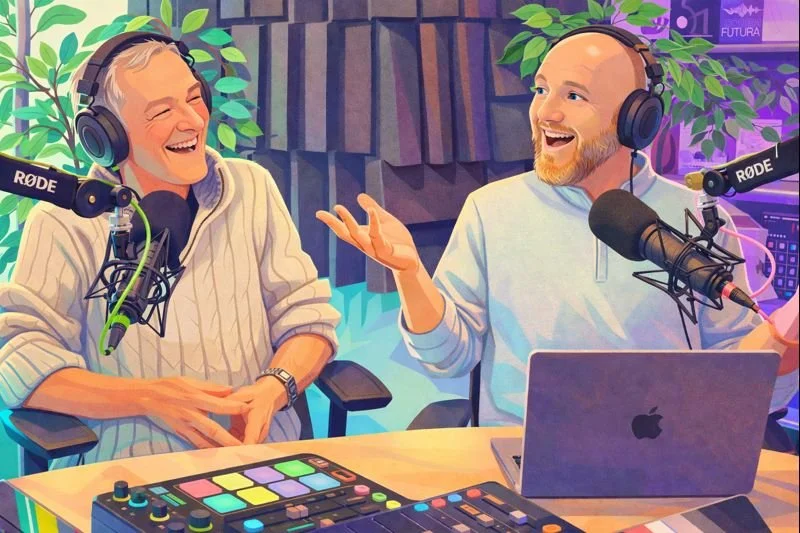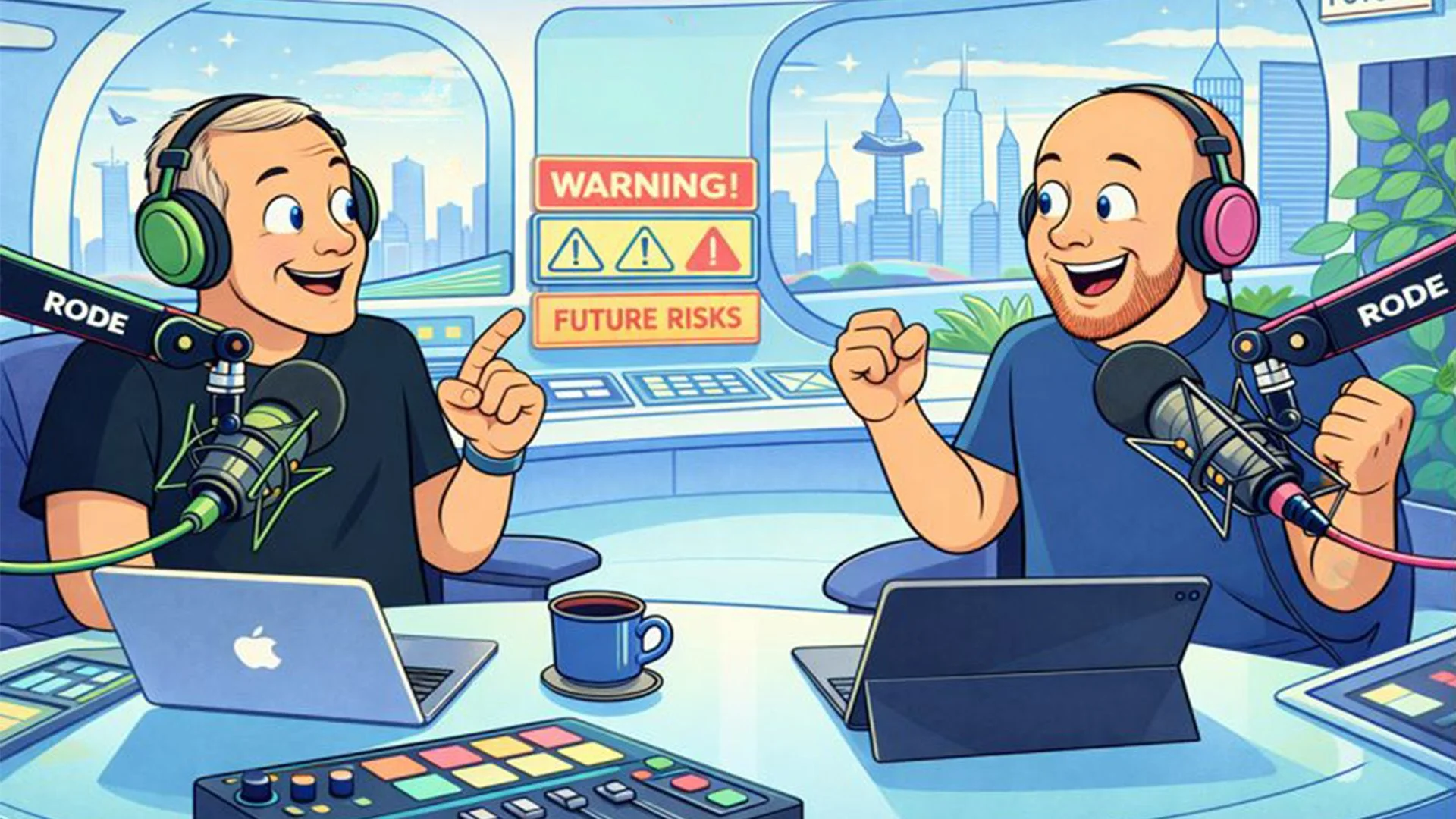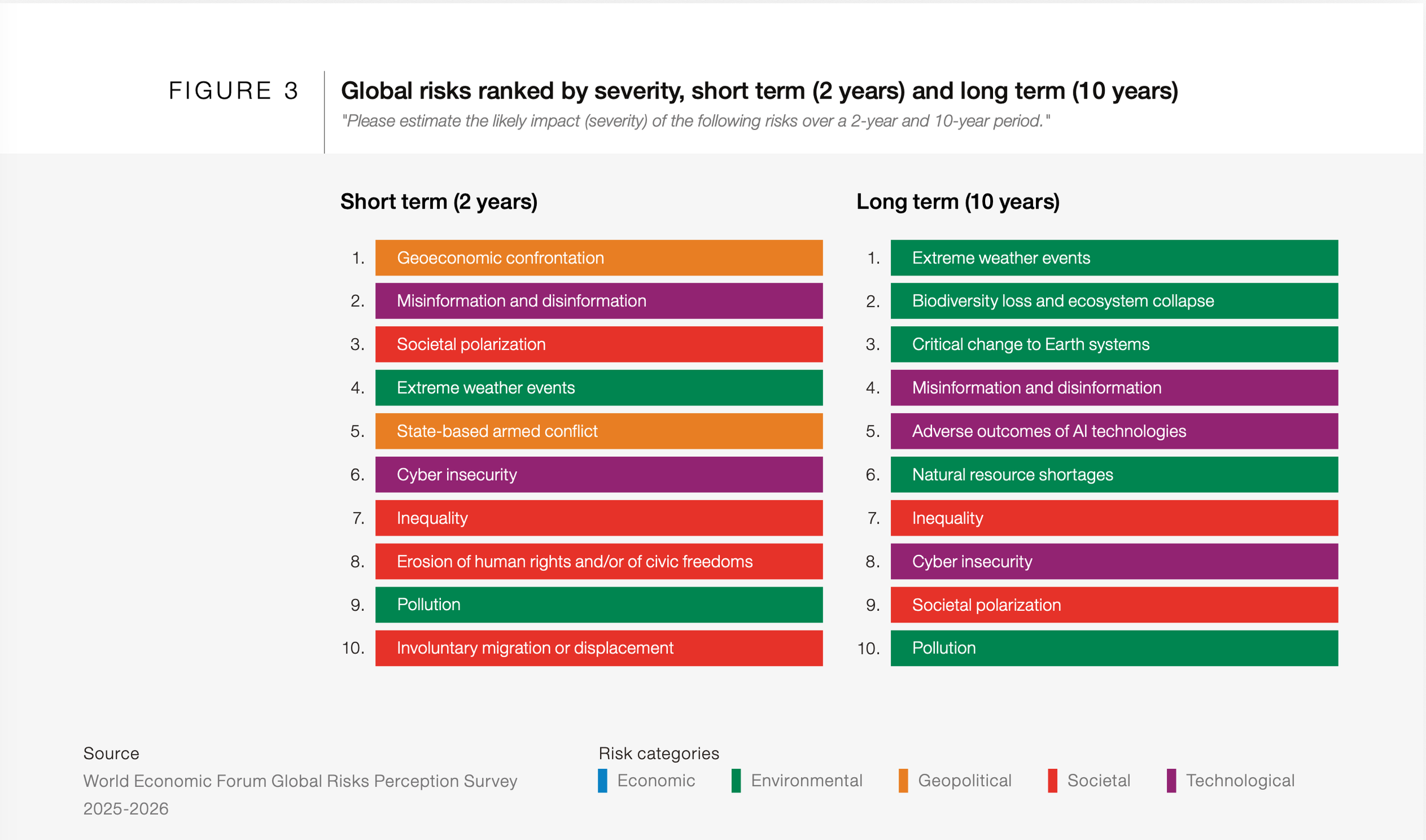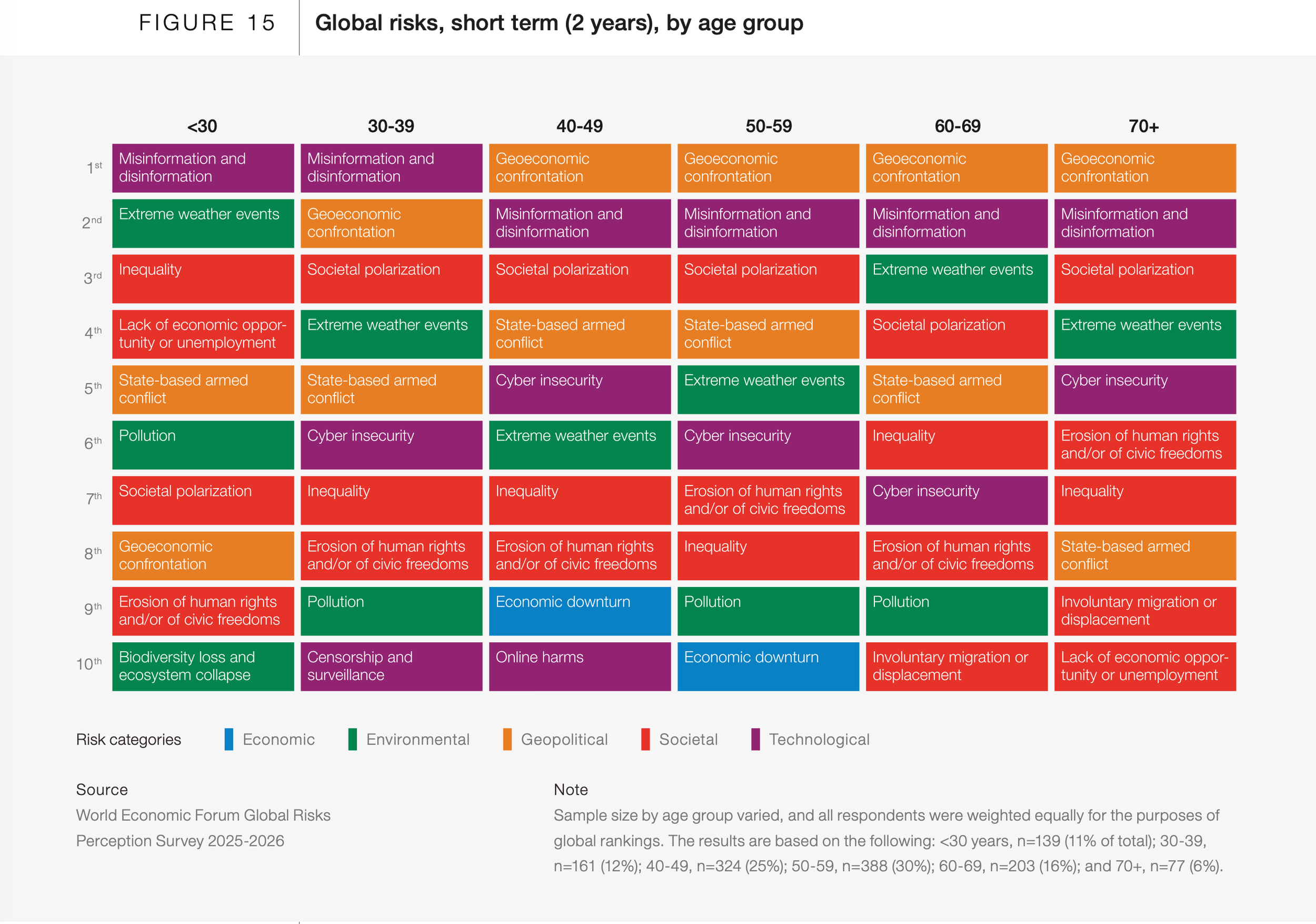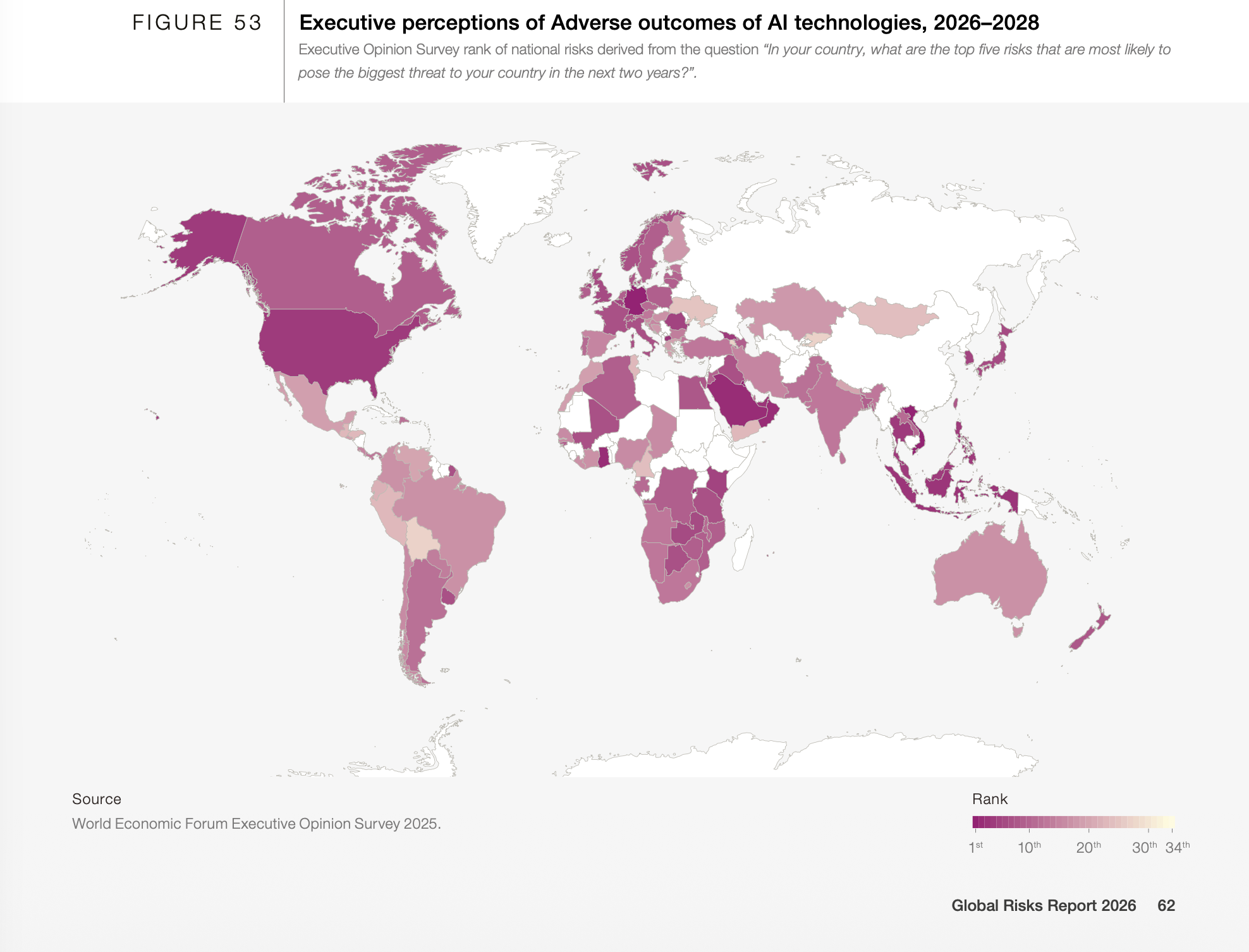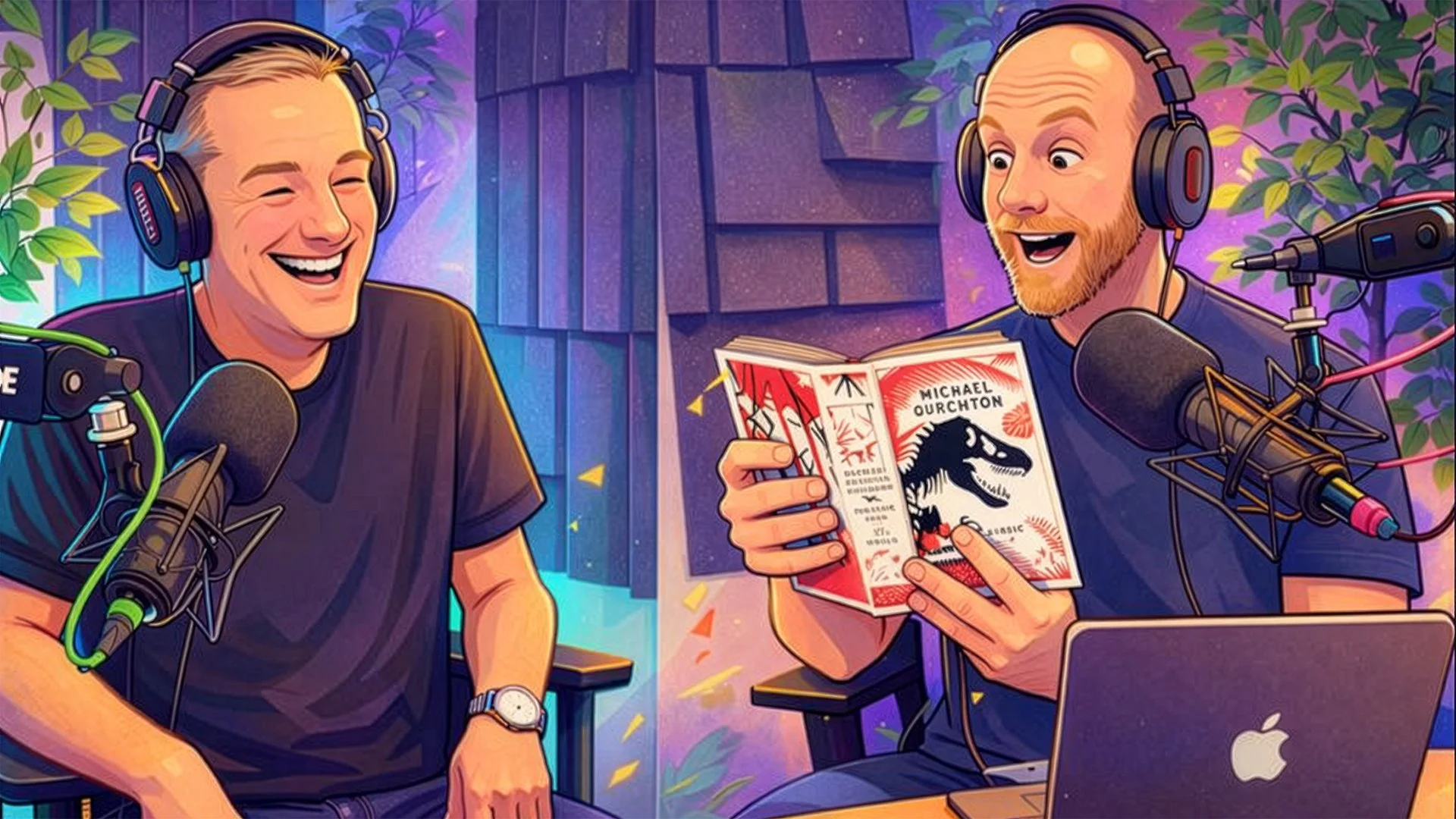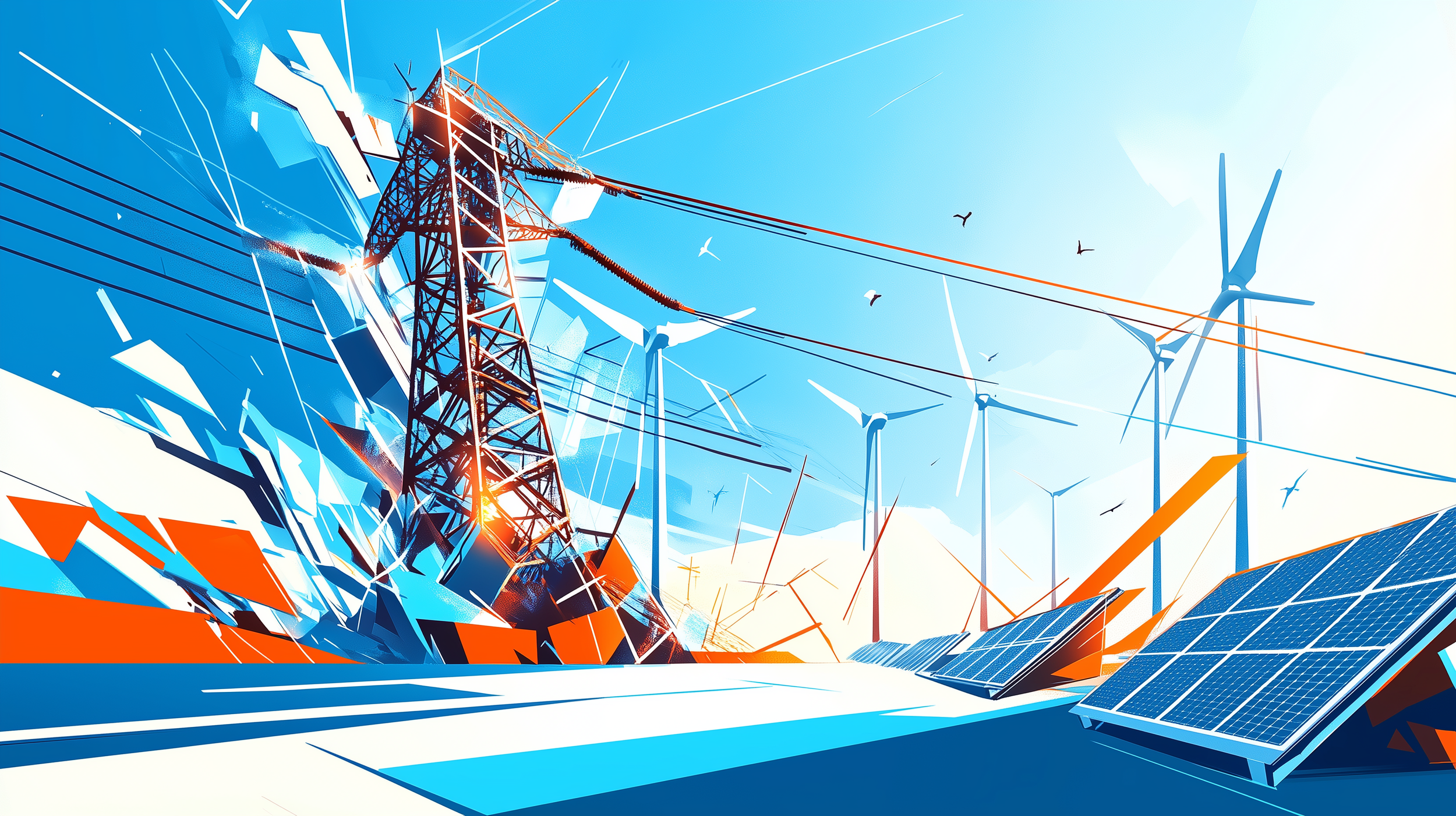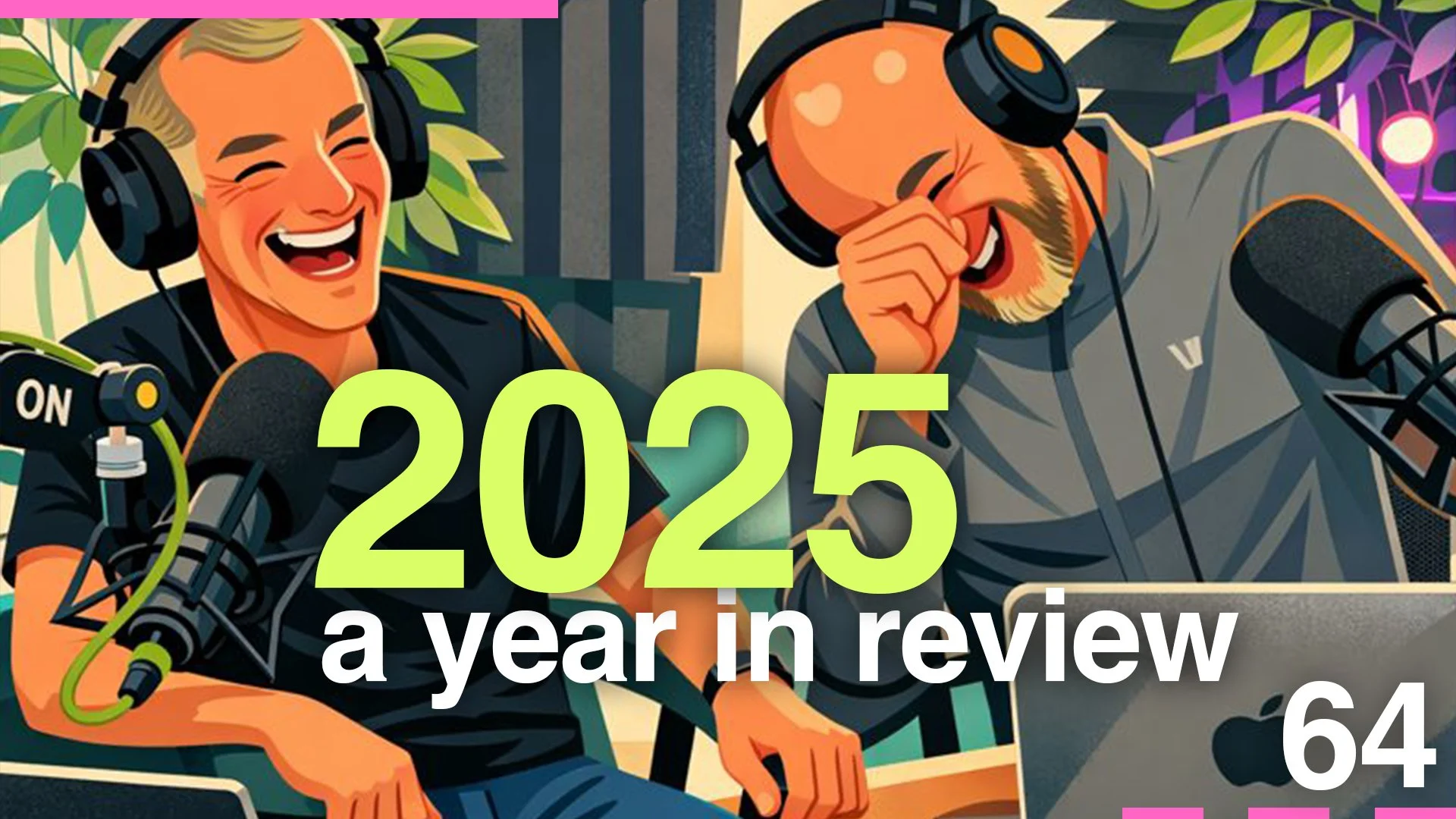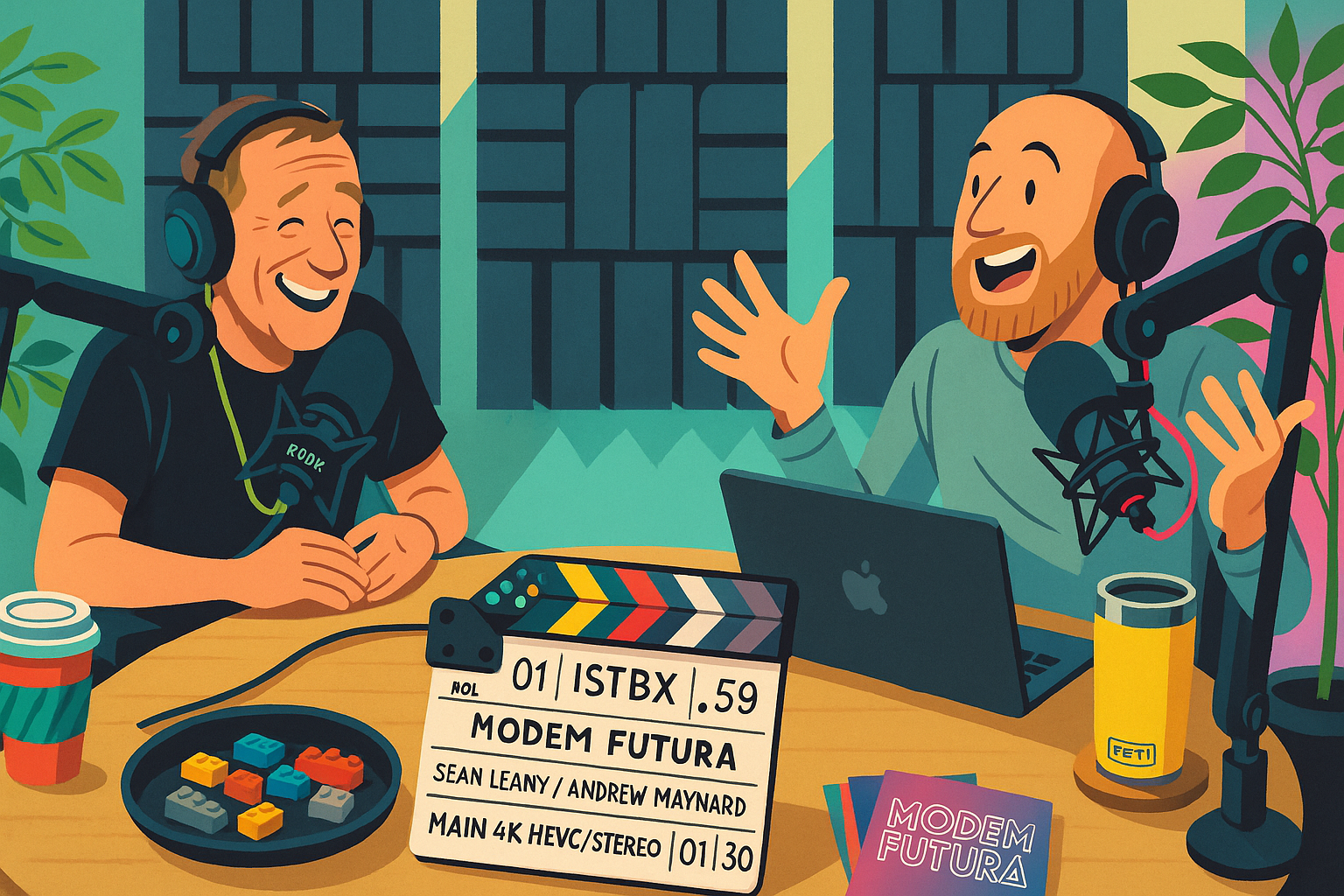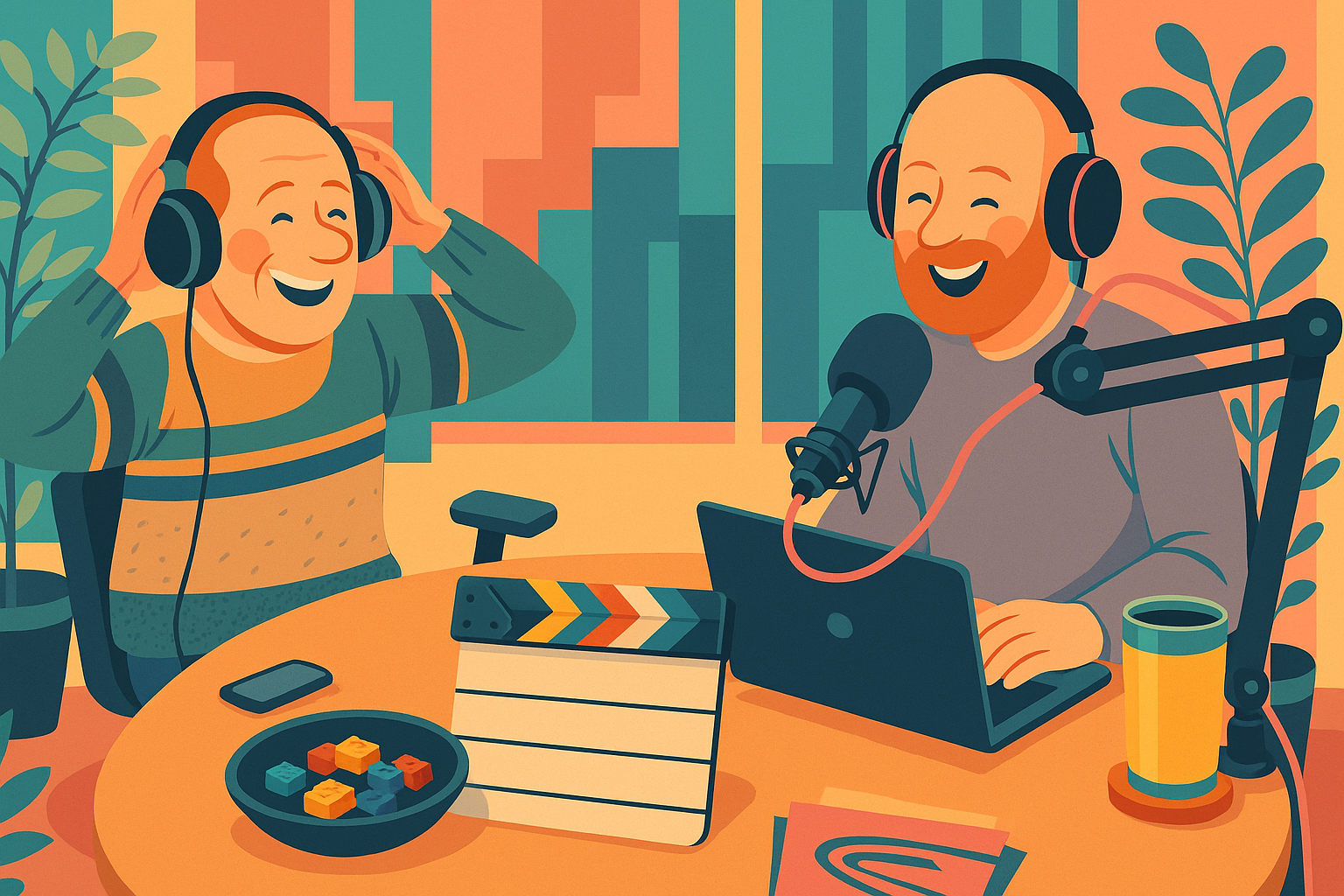What if happiness is the threat?
Most apocalypse stories share a common grammar: society collapses, resources become scarce, and survival demands violence. We've internalized this template so thoroughly that it shapes how we imagine catastrophe itself.
Apple TV's Pluribus, created by Vince Gilligan (Breaking Bad, Better Call Saul), disrupts that grammar entirely. Its apocalypse isn't marked by destruction or suffering. It's marked by peace. By synchronization. By happiness—at a planetary scale.
An alien signal arrives carrying an RNA sequence. Humanity, being humanity, synthesizes it. Within days, most of the global population transforms into a unified hive mind. Not zombies. Not drones. Just billions of people sharing consciousness, moving together, experiencing what appears to be genuine contentment.
About a dozen people remain unconverted. And the series follows one of them—Carol Sterka, played by Rhea Seehorn—as she grapples with being the most unhappy person on earth.
On a recent episode of the Modem Futura podcast, we explored what Pluribus surfaces about individuality, consent, collective identity, and the stories we tell ourselves about what makes a human life worth living. What follows are some of the tensions that emerged.
What is in a Name: Many Without the One
The title "Pluribus" comes from the Latin phrase E Pluribus Unum—"out of many, one"—which appears on American currency as a motto of national unity.
But the show drops both the "E" (out of) and the "Unum" (one). What remains is simply "Pluribus": the many. It's a subtle signal that this isn't a story about diversity coming together into unity. It's a story about what happens when "the many" becomes literal—when individual minds merge into a single, collective consciousness.
That linguistic choice frames everything that follows.
Who Becomes the Monster?
One of the most productive lenses for understanding Pluribus is Richard Matheson's 1954 novel I Am Legend. Not the Will Smith film adaptation, but the original text, which ends with a devastating realization: the protagonist, who has spent the story hunting the "monsters" who have replaced humanity, comes to understand that from their perspective, he is the monster. The one who kills in the night. The one who refuses to accept the new order.
Carol Sterka occupies similar territory. She's convinced she needs to "set things right"—to restore humanity to its pre-hive state. But the show keeps surfacing an uncomfortable question: right for whom? The hive mind has eliminated war, poverty, and suffering. Billions of people who lived in misery are now at peace.
If Carol succeeds in reversing the transformation, she's not saving people. She's condemning them to return to lives many of them would never have chosen.
The Consent Paradox
The hive mind in Pluribus operates under an interesting constraint: it cannot lie, and it will not assimilate anyone without their explicit permission.
This sounds like respect for autonomy. And in some sense, it is. But the hive mind also desperately wants everyone to join (even explaining that it’s a ‘biological’ imperative). So what emerges is a kind of relentless, patient persuasion—always honest, always gentle, and always oriented toward a predetermined outcome.
There's something uncomfortably familiar in this dynamic. We navigate versions of it constantly: platforms that "personalize" our experience toward their engagement metrics, systems that "recommend" content optimized for their retention goals, interfaces designed to make one choice frictionless and alternatives invisible.
The hive mind's honesty doesn't make its agenda less persistent. It just makes the agenda transparent.
The Sustainability Problem
Midway through the season, Pluribus introduces a complication: the hive mind will only consume things that have already died naturally. No killing. No harvesting. Just waiting for life to end on its own terms.
Which means, at planetary scale, they're slowly starving.
This creates a strange inversion. Carol, the last holdout, has skills and knowledge that could help solve the problem. But she's too consumed by her mission to "fix" things to collaborate with the very beings who need her help.
There's something painfully recognizable in that dynamic—the way ideological certainty can prevent us from engaging productively with people whose worldview differs from our own, even when collaboration would benefit everyone.
Is the Individual Still in There?
One of the more haunting threads in Pluribus involves the question of whether individual identities persist within the hive mind.
Carol's "chaperone"—a member of the hive who presents as an individual named Zosia—occasionally exhibits moments that feel less like collective consciousness and more like... a person surfacing. A memory that seems too specific. A reaction that seems too singular. (The Mango ice cream scene is a particular interesting one where for a moment - the real Zosia seems to surface).
Another character (Manousos) experiments with radio frequencies, attempting to extract individuals back out of the collective, seemingly trying to hack the near field electromagnetic connections the “others” have with one another.
The show doesn't resolve this, but rather leaves it as a season 1 cliffhanger as it seems some progress is made. But it raises the question: if you could pull someone out of a state of collective happiness and return them to individual consciousness, would that be rescue or harm? Liberation or trauma?
There's no easy answer. And Pluribus is wise enough not to pretend there is.
The AI Parallel (That Isn't Really About AI)
Vince Gilligan has stated that Pluribus isn't intended as an AI allegory. The original concept predates the current wave of generative AI by years.
And yet.
The show's exploration of collective intelligence, of optimization toward contentment, of systems that genuinely want to help but whose help involves transformation into something other than what you were—all of it resonates with questions we're already asking about artificial intelligence and its role in human flourishing.
The hive mind's impulse to "fix" things, to smooth over friction, to optimize for happiness—that's not so different from Silicon Valley's persistent faith that the right algorithm can solve human problems. The show doesn't moralize about this. It simply shows what it might feel like to be on the receiving end of that faith.
The hive mind might be the best thing that ever happened to humanity. Or it might be the end of everything that made humanity worth preserving. The show suggests both readings are available, and neither is obviously wrong. In the end, this is my favorite part of the show - it catalyzes great conversations… it pushes us to examine very human elements by forcing us to entertain scenarios in which we question what it means to be human. Now we just have to wait a seemingly excruciating long time until Season 2 will be ready – until then, stay curious!
Subscribe and Connect!
Subscribe to Modem Futura wherever you get your podcasts and connect with us on LinkedIn. Drop a comment, pose a question, or challenge an idea—because the future isn’t something we watch happen, it’s something we build together. The medium may still be the massage, but we all have a hand in shaping how it touches tomorrow.
🎧 Apple Podcast: https://apple.co/4k0l1bo
🎧 Spotify: https://open.spotify.com/episode/5ymC2VZJUz7iLTvYj89CXa?si=52mn5UiBRH-gbkpSEnV4Tw
📺 YouTube: https://youtu.be/xsxJWN5FO-U
🌐 Website: https://www.modemfutura.com/
Related Reading
I Am Legend by Richard Matheson
Solaris by Stanisław Lem
The Borg episodes of Star Trek: The Next Generation


